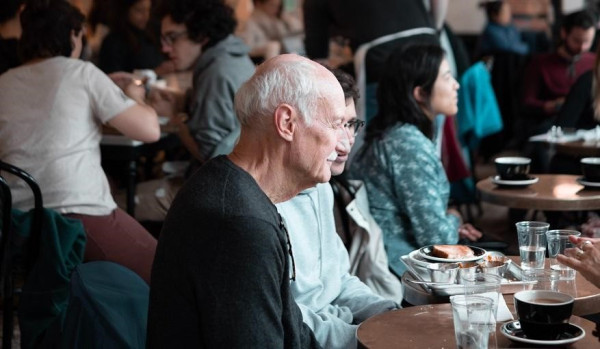Prostate cancer
In New Zealand (NZ), prostate cancer is the most common cancer affecting men, with over 3000 cases and 600 deaths per year. With early treatment, most men will survive their prostate cancer. However, treatment options can be associated with ongoing side effects, which can be worrying and contribute to long-term psychosocial distress. For many men, this means living with the effects of the treatments they have received and any associated treatment-related distress.
Key project “An evaluation of a prostate cancer health literacy program” is led primarily by Dr Tania Blackmore and is funded by a Health Research Council Research Activation grant (HRC Ref: 20/1142).
This study is a collaborative project between the University of Waikato and the Waikato District Health Board (DHB). Cancer nurse specialists at Waikato DHB have initiated a prostate cancer information session for men newly diagnosed with prostate cancer. This session aims to help men be better informed about their diagnosis and treatment side effects and is a crucial first step to try and address some of the concerns that contribute to future psychosocial distress. With the program still in its infancy, a formal evaluation of its efficacy to adequately meet the needs of all men diagnosed with prostate cancer is needed. We propose an evaluation of this information session to determine the potential for this type of program to be more formally implemented long-term to help men to better understand their prostate cancer and treatment decisions in order to reduce future psychosocial distress and treatment regret.

Costs and complications of prostate cancer
The Medical Research Centre team became involved in prostate cancer research with a 2010 Health Research Council project looking at the costs and complications of prostate cancer. This was carried out in conjunction with Mr Michael Holmes, Waikato Urologist, Professor Peter Gilling from the University of Auckland and Dr Lianne Tyrie from the Kathleen Kilgour Cancer Centre.
Professor Lawrenson had been working with TrueNTH on improving screening and assessment care for men with prostate cancer. (Member of the TrueNTH International Guideline for Sexual Health Care in Prostate Cancer ) The ‘TrueNTH’ intervention is funded by the Movember Foundation, and aims to improve the lives of men with prostate cancer, their partners, carer’s and families.
Local prostate cancer register
A grant from the Waikato Medical Research Foundation helped us develop the Waikato Bay of Plenty Prostate Cancer Register. This Register now has more than 250 men registered.
We also work closely with Te Puna Oranga (Māori Health Service) at the WDHB who provide cultural advice and support. Associate Professor Kidd is an important link with the Māori community and an experienced Māori researcher who has extensively published on Māori inequities in cancer care and was a co-leader of a 3-year project– Oranga Tu. Prof Lawrenson contributed to a recent publication “Inequalities between Māori and non-Māori men with prostate cancer in Aotearoa New Zealand”.
Recent publications
Egan R., Kidd J., Lawrenson R., Cassim S., Black S., Blundell R., Bateman J., Broughton J. Inequalities between Māori and non-Māori men with prostate cancer in Aotearoa New Zealand. NZMJ 4 September 2020, Vol 133 No 1521. ISSN 1175-8716
Lawrenson, R., Blackmore, T. Quality of life after prostate cancer treatment in Proceedings of the Waikato Clinical Campus Biannual Research Seminar. 2018. Hamilton, New Zealand Medical Journal, Vol. 131, No. 1479.
Wang A, Karunasinghe N, Plank L, Zhu S, Osborne S, Bishop K, Brown C, Schwass T, Masters J, Holmes M, Huang R, Keven C, Ferguson L, Lawrenson R. Effect of Androgen Deprivation Therapy on Bone Mineral Density in a Prostate Cancer Cohort in New Zealand: A Pilot Study. Clin Med Insights Oncol. 2017 Oct 9;11:1179554917733449